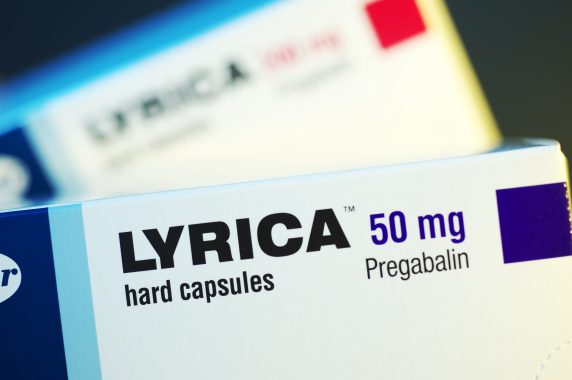Pfizer’s failed pregabalin patent appeal means NHS could reclaim £502m

The NHS could claim back over half a billion pounds from Pfizer – following a long-running controversy that saw GPs having to switch patients between generic and branded pregabalin – after the Supreme Court ruled that the drug company’s patent for Lyrica (pregabalin) is invalid.
The judgement, handed down this morning, dismissed Pfizer’s final attempt to uphold its patent, and accused the company of trying to hold a ‘monopoly’ with ‘insufficient’ evidence.
The announcement brings an end to the lengthy legal battle over Pfizer’s second medical patent for pregabalin, granted solely for treatment of pain, in which GPs saw their generic prescriptions refused by pharmacists and practices were forced to shoulder the costs of reversing patients from branded to generic pregabalin.
Speaking at the Supreme Court today, Lord Sumption read the judgement, and explained that the patent was deemed invalid due to a lack of evidence for the conditions it covered – central and peripheral neuropathic pain.
He said: ‘Although the patent specification showed sufficiently why pregabalin could be expected to work with peripheral neuropathic pain, it didn’t show any scientific reason why it would be expected to work for central neuropathic pain. Since the patent covered both, the disclosure was therefore insufficient.’
‘The Supreme Court unanimously agrees that the patent claimed a monopoly on all neuropathic pain,’ he continued.
Lord Sumption concluded: ‘Since Warner-Lambert (Pfizer) do not challenge the finding that the specification made insufficient disclosure as regard to central neuropathic pain, it follows that the patent was invalid for sufficiency of disclosure. The specification was insufficient. On that ground we dismiss Warner-Lambert’s (Pfizer’s) appeal.’
Earlier this year, researchers calculated the amount that the NHS paid for pregabalin, and compared it with the amount they would have paid if pregabalin had been generically available from October 2015 – when GPs were forced to change patients from generic pregabalin to branded – to July 2017 – when the second patent ran out. This resulted in a difference of £502m.
The study, published by bioRXiv and led by University of Oxford in collaboration with an intellectual property law firm, aimed to highlight the variation in the prescribing rates of branded pregabalin.
Lead researcher and campaigner Dr Ben Goldacre said that if Pfizer’s last attempt to appeal to the Supreme Court fails, the NHS should seek a reimbursement of £502m in excess prescribing costs for England alone.
A spokesperson for the Department of Health and Social Care said: ‘We will carefully consider the judgment and its impact, including the possibility to seek damages.’
Meanwhile, a Pfizer spokesperson said: ‘As situations such as these are expected to become more common, it’s important for patients that pharmaceutical companies are able to protect patents, including second medical use patents.
‘This is why Pfizer is disappointed with the decision issued by the Supreme Court in London regarding the second medical use patent covering Lyrica (pregabalin) for pain.’
Pulse previously revealed that some pharmacists resorted to triggering a significant event alert every time a GP prescribed generic pregabalin instead of Lyrica, so as not to fall foul of Pfizer’s ‘threats’.
The pregabalin dispute
The pharma giant’s main patent for Lyrica – indicated for seizure disorders – in the UK expired in 2013, but at that time it still held a ‘second medical use’ patent for the drug, when prescribed for neuropathic pain.
After the initial patent ran out generic versions of pregabalin came onto the market, meaning that GPs could prescribe a generic version instead of Lyrica for neuropathic pain, despite the second patent.
An interim legal judgment in favour of Pfizer in early 2015, led to NHS England issuing guidance to GPs, and forcing them to switch thousands of patients’ prescriptions to Lyrica.
But a High Court judgement in September 2015 threw out the patent claim saying that the evidence supporting the patent for pain was insufficient, a ruling supported by the Court of Appeal.
In a last-ditch attempt to keep the patent, the company then appealed to the Supreme Court in February 2018, with the appeal being dismissed on 14 November 2018.
Visit Pulse Reference for details on 140 symptoms, including easily searchable symptoms and categories, offering you a free platform to check symptoms and receive potential diagnoses during consultations.












